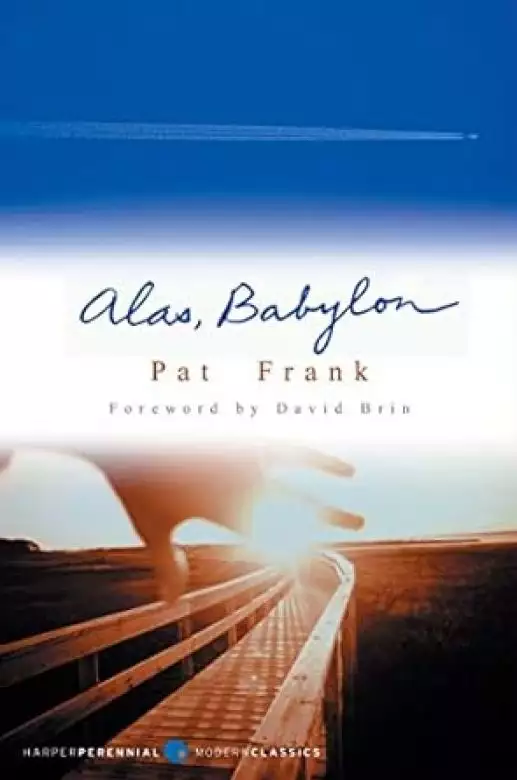Preface
I have an acquaintance, a retired manufacturer, a practical man, who has recently become worried about international tensions, international missiles, H-bombs, and such.
One day, knowing that I had done some writing on military subjects, he asked: “What do you think would happen if the Russkies hit us when we weren’t looking—you know, like Pearl Harbor?”
The subject was on my mind. I had recently returned from a magazine assignment at Offutt Field, Headquarters of the Strategic Air Command, several SAC operational bases, and the Missile Test Center on Cape Canaveral. More to the point, I had been discussing just such a possibility with several astute British staff officers. The British have lived under the shadow of nuclear-armed rockets longer than we. Also, they have a vivid memory of cities devastated from the skies, as have the Germans and Japanese.
A man who has been shaken by a two-ton blockbuster has a frame of reference. He can equate the impact of an H-bomb with his own experience, even though the H-bomb blast is a million times more powerful than the shock he endured. To someone who has never felt a bomb, bomb is only a word. An H-bomb’s fireball is something you see on television. It is not something that incinerates you to a cinder in the thousandth part of a second. So the H-bomb is beyond the imagination of all but a few Americans, while the British, Germans, and Japanese can comprehend it, if vaguely. And only the Japanese have personal understanding of atomic heat and radiation.
It was a big question. I gave him a horseback opinion, which proved conservative compared with some of the official forecasts published later. I said, “Oh, I think they’d kill fifty or sixty million Americans—but I think we’d win the war.”
He thought this over and said, “Wow! Fifty or sixty million dead! What a depression that would make!”
I doubt if he realized the exact nature and extent of the depression—which is why I am writing this book.
—1959
1
In Fort Repose, a river town in Central Florida, it was said that sending a message by Western Union was the same as broadcasting it over the combined networks. This was not entirely true. It was true that Florence Wechek, the manager, gossiped. Yet she judiciously classified the personal intelligence that flowed under her plump fingers, and maintained a prudent censorship over her tongue. The scandalous and the embarrassing she excised from her conversation. Sprightly, trivial, and harmless items she passed on to friends, thus enhancing her status and relieving the tedium of spinsterhood. If your sister was in trouble, and wired for money, the secret was safe with Florence Wechek. But if your sister bore a legitimate baby, its sex and weight would soon be known all over town.
Florence awoke at six-thirty, as always, on a Friday in early December. Heavy, stiff and graceless, she pushed herself out of bed and padded through the living room into the kitchen. She stumbled onto the back porch, opened the screen door a crack, and fumbled for the milk carton on the stoop. Not until she straightened did her china-blue eyes begin to discern movement in the hushed gray world around her. A jerky-tailed squirrel darted out on the longest limb of her grapefruit tree. Sir Percy, her enormous yellow cat, rose from his burlap couch behind the hot water heater, arched his back, stretched, and rubbed his shoulders on her flannel robe. The African lovebirds rhythmically swayed, heads pressed together, on the swing in their cage. She addressed the lovebirds: “Good morning, Anthony. Good morning, Cleo.”
Their eyes, spectacularly ringed in white, as if embedded in mint Life Savers, blinked at her. Anthony shook his green and yellow plumage and rasped a greeting. Cleo said nothing. Anthony was adventurous, Cleo timid. On occasion Anthony grew raucous and irascible and Florence released him into limitless freedom outside. But always, at dusk, Anthony waited in the Turk’s-cap, or atop the frangipani, eager to fly home. So long as Cleo preferred comfortable and sheltered imprisonment, Anthony would remain a domesticated parrot. That’s what they’d told her when she bought the birds in Miami a month before, and apparently it was true.
Florence carried their cage into the kitchen and shook fresh sunflower seed into their feeder. She filled Sir Percy’s bowl with milk, and crumpled a bit of wafer for the goldfish in the bowl on the counter. She returned to the living room and fed the angelfish, mollies, guppies, and vivid neons in the aquarium. ...
We hope you are enjoying the book so far. To continue reading...
Copyright © 2026 All Rights Reserved
